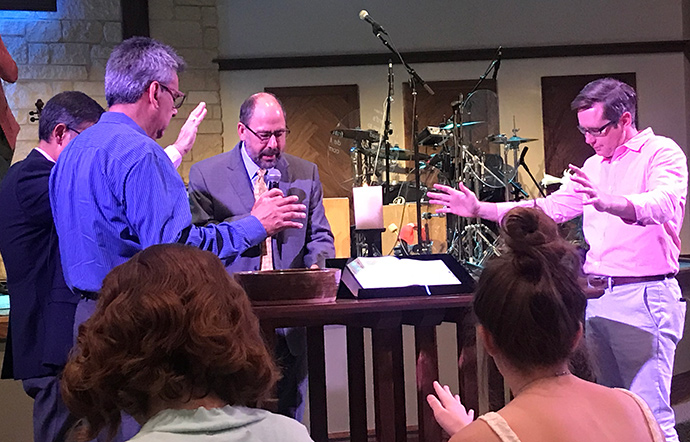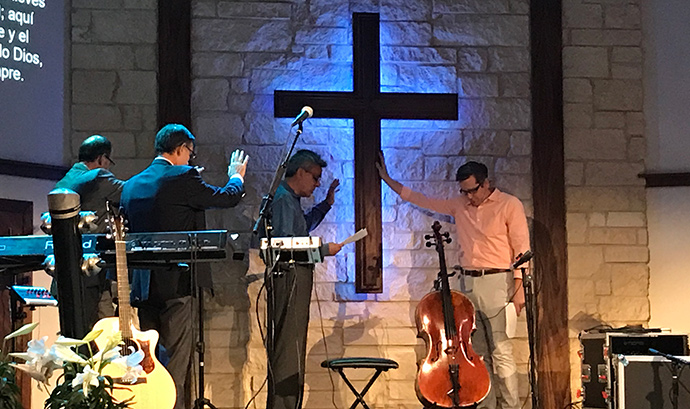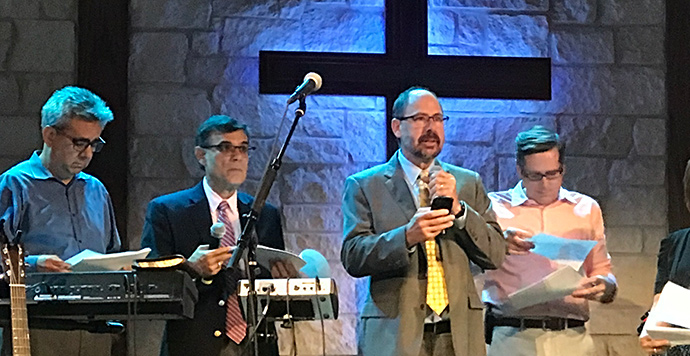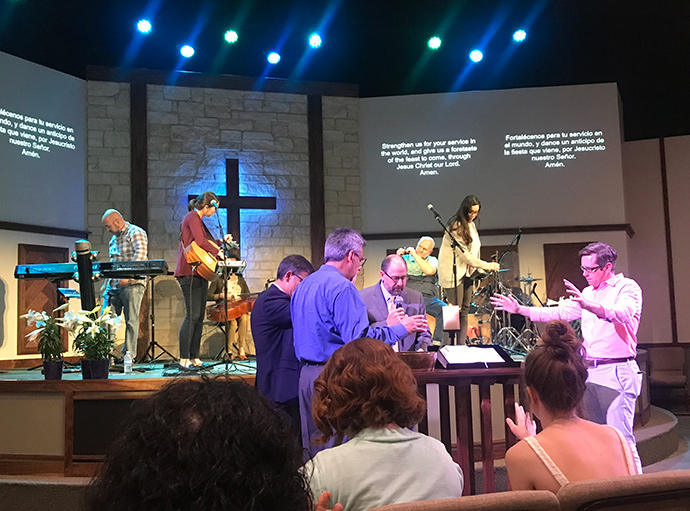
By: The Rev. Kip Gilts
Ahh, that new church smell! Don’t you love it? There is something special about new. A new car smells so good that we set up rules to keep it smelling new for as long as we can. I have a life principle that says if you can order your food with a number, you should probably not eat that – and you will definitely not eat that in my new car! I want to keep that new car feel for as long as I can. You may be tempted to do the same with a new church. “No, we can’t have pizza for the youth. It will mess up that new church smell.” “Why don’t we serve communion using white grape juice so it won’t mess up our new carpet.” But God seems to be more about the new things that happen inside than maintaining the façade of the new on the visible. Don’t get me wrong, I believe strongly that God likes that new church smell, too.
Don’t you know creation smelled good! Seven times in the Genesis 1 creation account, the word good is used and the last time it is used on Day 6 as everything came together, “God saw that it was very good.” But God perpetuates newness, rather than preserving it. Look at what Paul wrote in 2 Corinthians 5:17, “So if anyone is in Christ, there is a new creation: everything old has passed away; see, everything has become new!” Paul then reminded us that we were project managers for this perpetuating of newness by calling us ambassadors of Christ, since God is making his appeal through us.

God perpetuates newness, rather than preserving it. Look at what Jeremiah proclaimed in Lamentations 3:22-23, “The steadfast love of the Lord never ceases, his mercies never come to an end; they are new every morning; great is your faithfulness.” Today’s blessing is wonderful, but this should not become the greatest day of this church. There will be new things tomorrow, new creations – perhaps even next Sunday, and new insights into God’s word in your life next month. This is just a reminder of God’s fondness for newness. God perpetuates newness, rather than preserving it.

Today is one week after Easter and I always remember the story of Jesus showing up at the disciples’ place, one week after the resurrection. But it was only in re-reading the story that God’s Spirit opened my eyes to something new. But Thomas (who was called the Twin), one of the twelve, was not with them when Jesus came. So the other disciples told him, “We have seen the Lord.” But he said to them, “Unless I see the mark of the nails in his hands, and put my finger in the mark of the nails and my hand in his side, I will not believe.” A week later his disciples were again in the house, and Thomas was with them. Although the doors were shut, Jesus came and stood among them and said, “Peace be with you.” Then he said to Thomas…” I don’t think I ever realized that Jesus came back just for Thomas. I knew that he addressed Thomas’ doubts in the visit, but when I noticed that the only thing that was recorded about that visit was Jesus penetrating a shut door and going straight to Thomas, it reminded me that God intends to leave no one behind. So, when I doubt, God will come to make new my faith that has grown stale. Maybe that’s why Jesus taught us to pray, “Give us this day our daily bread.” We’re not asking God to keep yesterday’s bread fresh, we’re asking for new bread. Because, God perpetuates newness, rather than preserving it.

So when you walk into this space, today or ten years from today, I invite you to reflect on Isaiah 43:19, “I am about to do a new thing; now it springs forth, do you not perceive it?” It’s a promise from a God who perpetuates newness, rather than preserving it.
Ahh, that new church smell! Don’t you love it? However, it’s not the smell of new chairs, fresh flowers, and sparkling paint. It’s the fragrance of Christ making all things new, all the time. Amen.

The Rev. Kip Gilts is District Superintendent for the Central North District of the Texas Annual Conference of the United Methodist Church.
Foundations of Faith provides advice from Texas church pastors and its leadership on how to lead effectively. This blog is brought to you by the Communications Department of the Texas Annual Conference of the United Methodist Church. To be considered as a subject matter expert, contact Shannon W. Martin, Director of Communication at smartin@smartin

